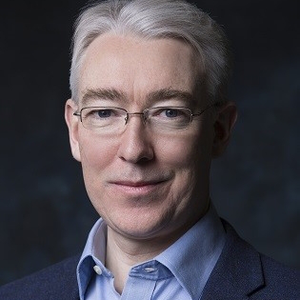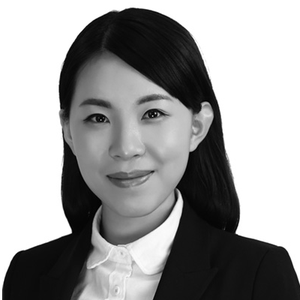
Patrick Horgan
Director of Government Relations at Rolls RoycePatrick Horgan is Director of Global Government Relations for Rolls-Royce. From 2011-2018 he was Regional Director, North-East Asia, based in Beijing. Prior to that, he was managing director of an international corporate advisory firm in China, advising leading MNCs on direct investment and on policy issues in China and other Asian emerging markets.
In 2007 he was awarded an OBE for services to the British business community in China. He started his business career with Jardine Matheson, in Hong Kong. Patrick has also held various external roles, board positions and advisory appointments, such as Chairman of the British Chamber of Commerce in China (2004-06), and member of the China Advisory Council for the EU. From 2009-2011 he also served as Counsellor for Education at the British Embassy in Beijing and Director of the British Council’s programmes across Greater China.

St. John Moore
Chairman at British Chamber of Commerce in ChinaSt. John has over 15 years’ experience in Beijing working with foreign companies operating across China, and Chinese companies going global. He regularly advises on government engagement, public policy issues, market access challenges and cross-border M&A and looks forward to bringing these experiences to the Exco.

Astrid Nordin
Chair of Chinese International Relations in the Lau China Institute at Kings College LondonProfessor Astrid Nordin holds the Lau Chair of Chinese International Relations in the Lau China Institute. She is also Senior Fellow of the Institute for Social Futures, and Associate Research Fellow at the Swedish Institute of International Affairs.
Astrid’s research develops critical conceptual tools that draw on Chinese and other global traditions of thought, and uses these to understand global challenges as they relate to China’s growing global role - from the Belt and Road Initiative, through sustainable cities, to practices of censorship and resistance. Her favourite thing about her job is learning new things from exciting people, and she welcomes suggestions for collaboration relating to her expertise.
Before joining King’s in 2021, Astrid was Professor of World Politics and Founding Director of Lancaster University China Centre. She has significant experience developing institutional partnerships with Chinese institutions, setting up and leading academic organisations, and collaborating on interdisciplinary projects across humanities and the social and natural sciences. She also has a background in journalism, and great enthusiasm for working with non-academic stakeholders in the arts, policy, and media. She has studied at Peking University, Jilin University, City University Hong Kong, the University of Warwick, and the University of Manchester.

Yue Su
Economist, China at The Economist Intelligence UnitAs China economist at The Economist Intelligence Unit, Yue plays a leading role in shaping the EIU’s views on China’s economy at both the national and regional level. Her research focuses on infrastructure development, regional economics, state-owned enterprises and the Belt and Road Initiative (BRI). She leads the regional forecasting work conducted under the EIU’s Access China service, which offers unrivalled analytical coverage of China’s provinces and cities, and is also involved in advising Chinese companies investing globally.
Yue joined The EIU in 2013, initially as a deputy economist. During her time at The EIU she has contributed to several special reports, including the China Going Global Investment Index (2015 & 2017), Prospects and challenges on China’s "One Belt, One Road”: a risk assessment report and China’s supply-side structural reforms: progress and outlook. She has also acted as a consultant or advisor on several commissioned studies in the infrastructure field, such as on public-private partnerships in China and Asia, and is one of the authors of the BRI Quarterly report available to EIU clients.
Yue holds a doctorate in political economy from the Central Party School/Chinese Academy of Governance. Her research focused on the aid effectiveness of multilateral development banks and analysed the factors that might disrupt the investment returns of infrastructure projects. Before joining The EIU she worked as a local government civil servant in China. Yue holds a BA in Economics from Hunan University and a Masters of Economics from The University of Hong Kong.